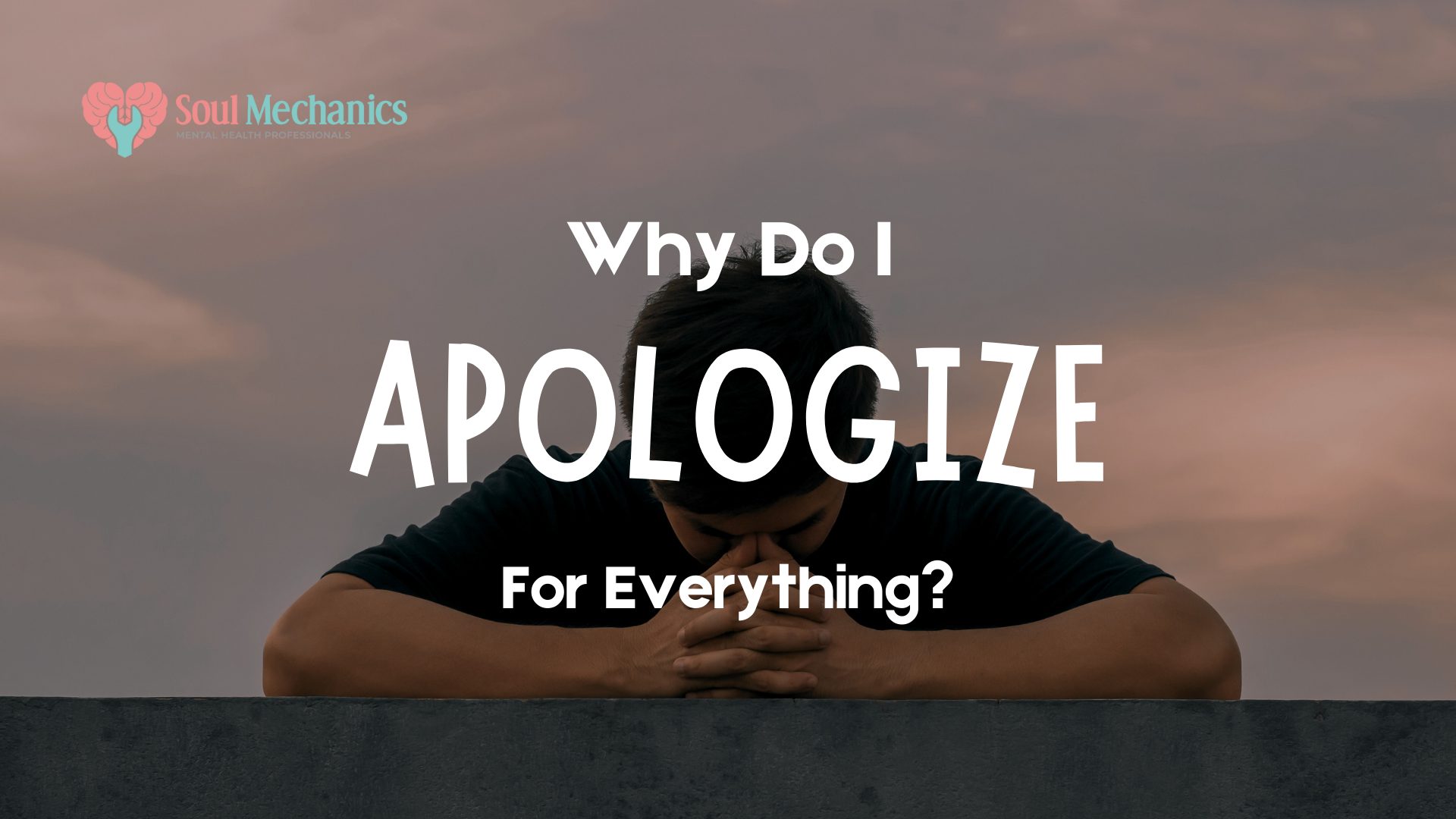Over-Apologizing: A Sign of Chronic Underlying?
Over-Apologizing: A Sign of Chronic Underlying?

Written By: Shaundtrya Ganasan, Licensed Counselor (KB11097)
“Over-apologizing”. Does that sound familiar to you? We have all said “sorry” at some point, be it for being late, accidentally bumping someone or making mistakes.
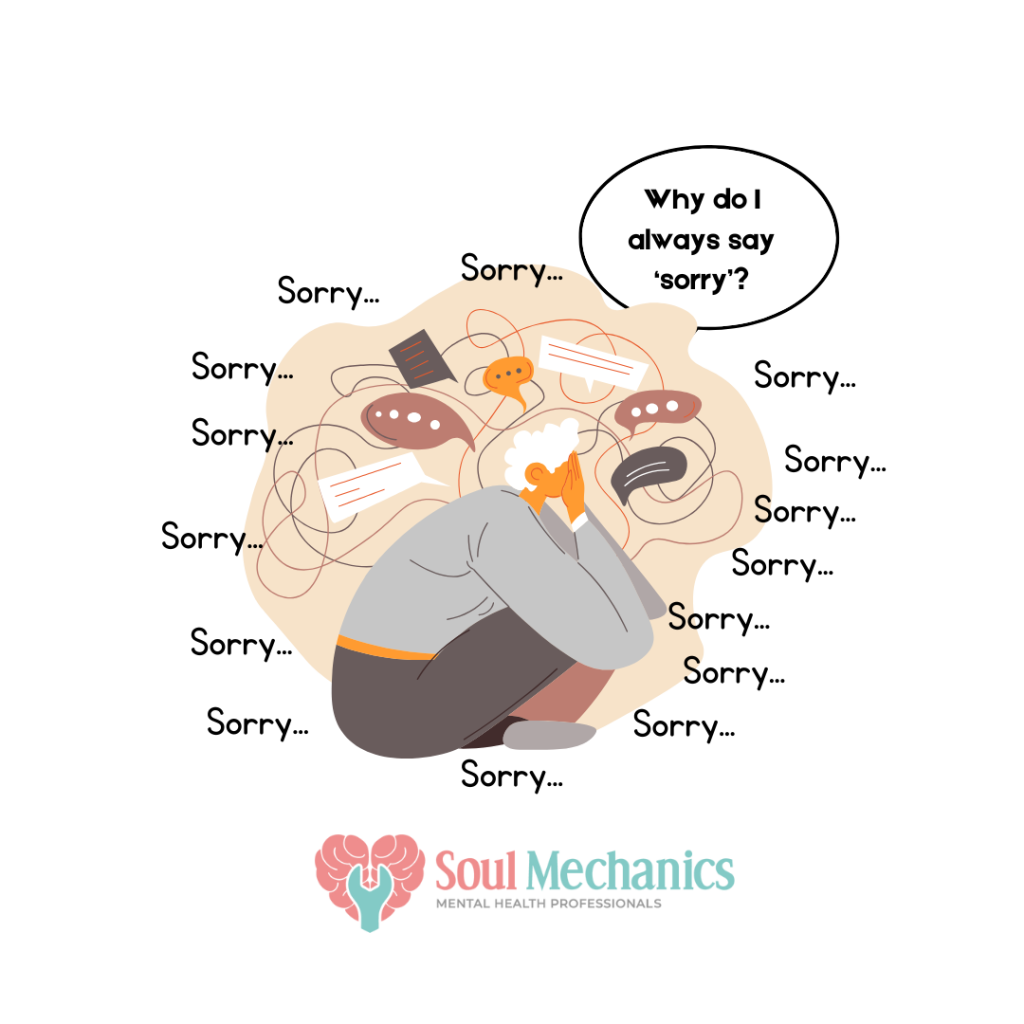
Apologizing is an essential social tool as it reflects your sense of taking accountability, desire to mend things and empathy. But, what happens when you start to “over-apologize”,; making it your preferred default response for everything? Even when there’s no mistake or no need for an apology?
Chronic apologizing is a subtle yet deeply rooted pattern that impacts the way you perceive yourself and how others perceive you. If you constantly find yourself apologizing over your emotions, existence, or for things that are beyond your capacity of control, it’s worth exploring the underlying of this behaviour and learning to break free from this loop.
What is Chronic Apologizing?
Chronic apologizing often goes beyond the normal level of politeness. It is the compulsion to say “sorry” excessively, especially in situations where no apology is needed. For example:
- Saying sorry when someone else makes a mistake.
- Apologize to ask or clarify anything.
- Feeling bad about putting forward opinions or ideas.
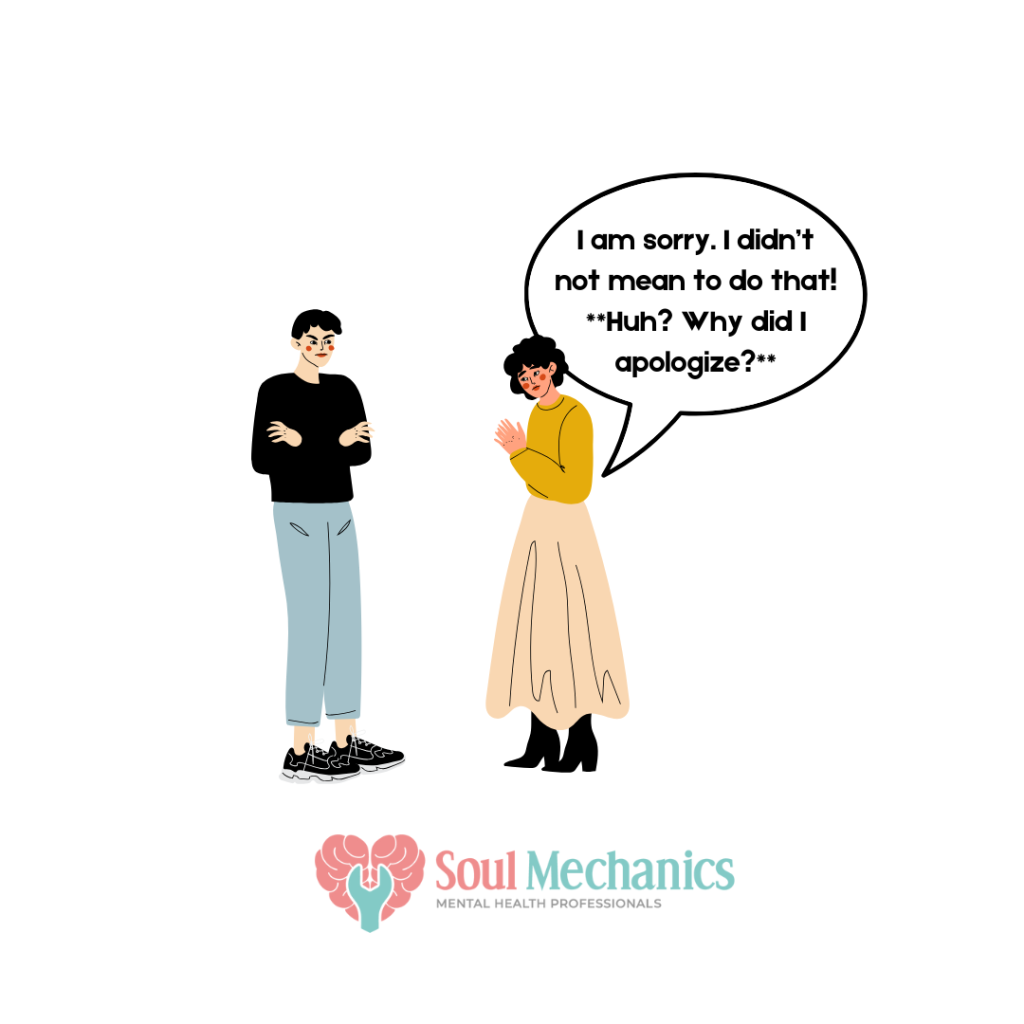
In the beginning, it may appear to be polite or not a big deal. However, habitual apologizing can gradually impact your sense of self, weaken your boundaries, not help you stay on your grounds, and influence how others treat you. Over time, it can be your usual approach of suppressing your voice and devaluing your needs over others' comfort.
Why Do I Apologize for Everything?
Chronic apologizing may not appear sudden or out of nowhere - it is often the manifestation of deeper emotional or psychological pain that may be shaped by your early life experiences, family upbringing, or environment. Below are some common underlying:
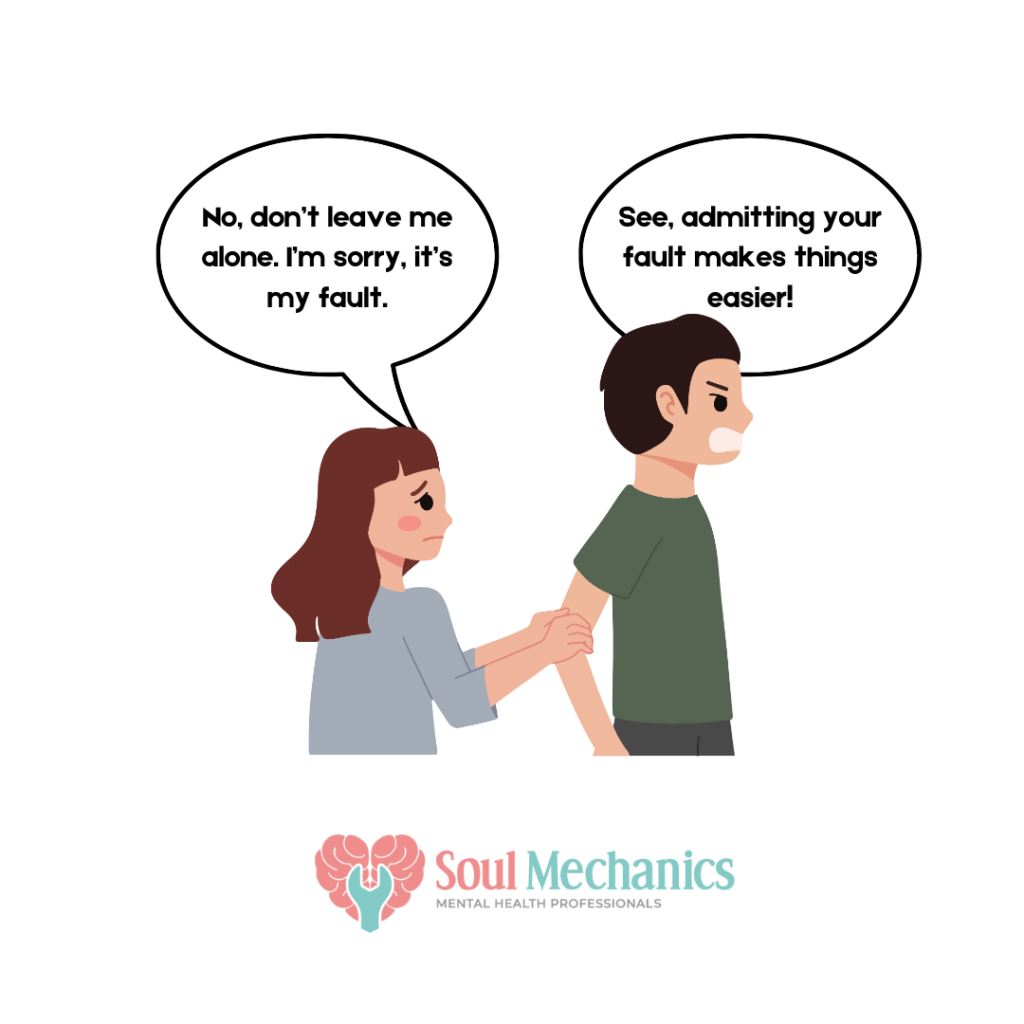
Fear of Conflict
If you grew up in a household full of noise, conflicts, and chaos or felt unsafe, you can develop a deeply ingrained need to avoid these triggers at all costs. Apologizing can become your tool to diffuse tension even before it arises, ensuring peace.
Low Self-Esteem
Over-apologizing can also be tied to feelings of inadequacy. When you perceive that your thoughts, actions or even presence can be a burden to others, apologizing becomes an approach to shrink yourself to prevent yourself from being seen as an inconvenience.
People-Pleasing Tendencies
If you have a strong need to be liked or be accepted by others, over-apologizing can stem from people-pleasing tendencies. Saying sorry can be your way of ensuring validation, even if it means suppressing or letting go of your own needs.
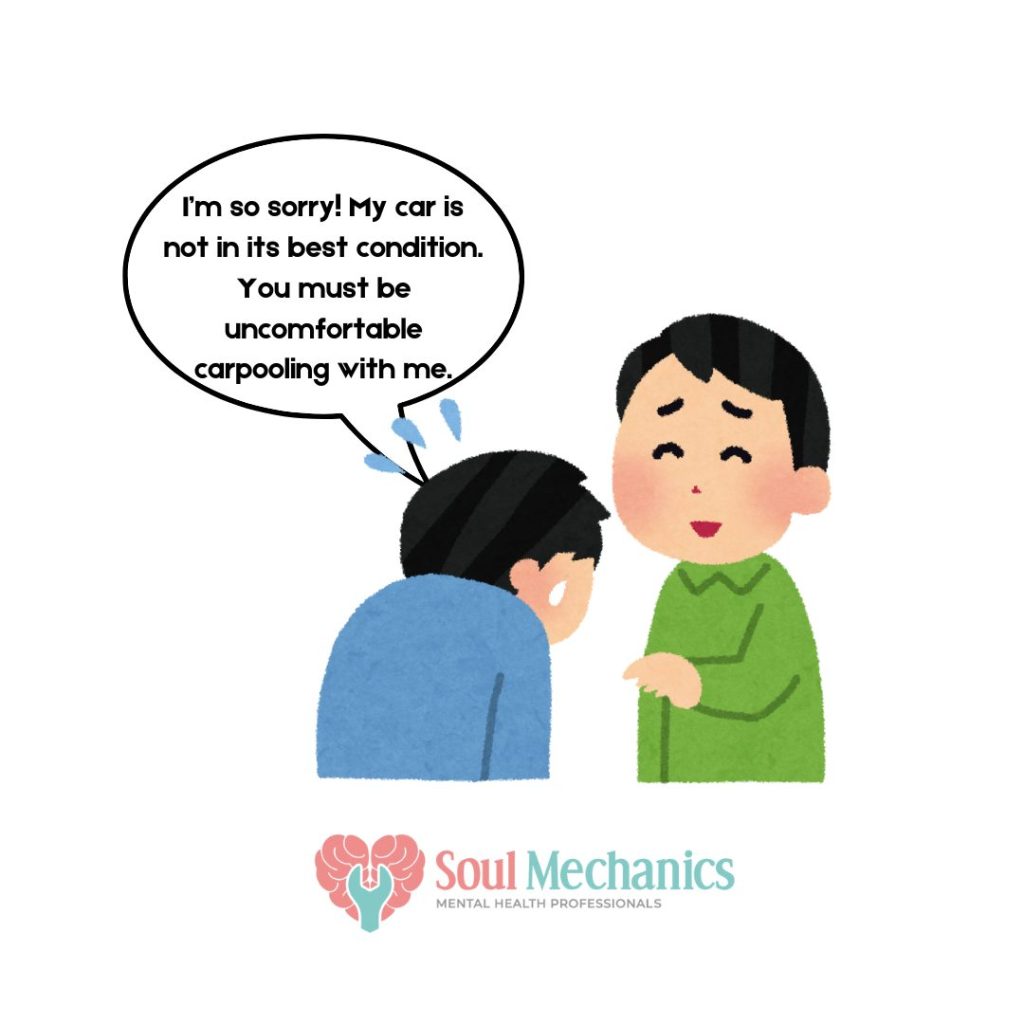
Conditioning From Childhood
Children who grow up with overly critical parents or caregivers tend to internalize the blame with the perception that they are at fault. This often shows up as an adult with chronic apologizing issues.
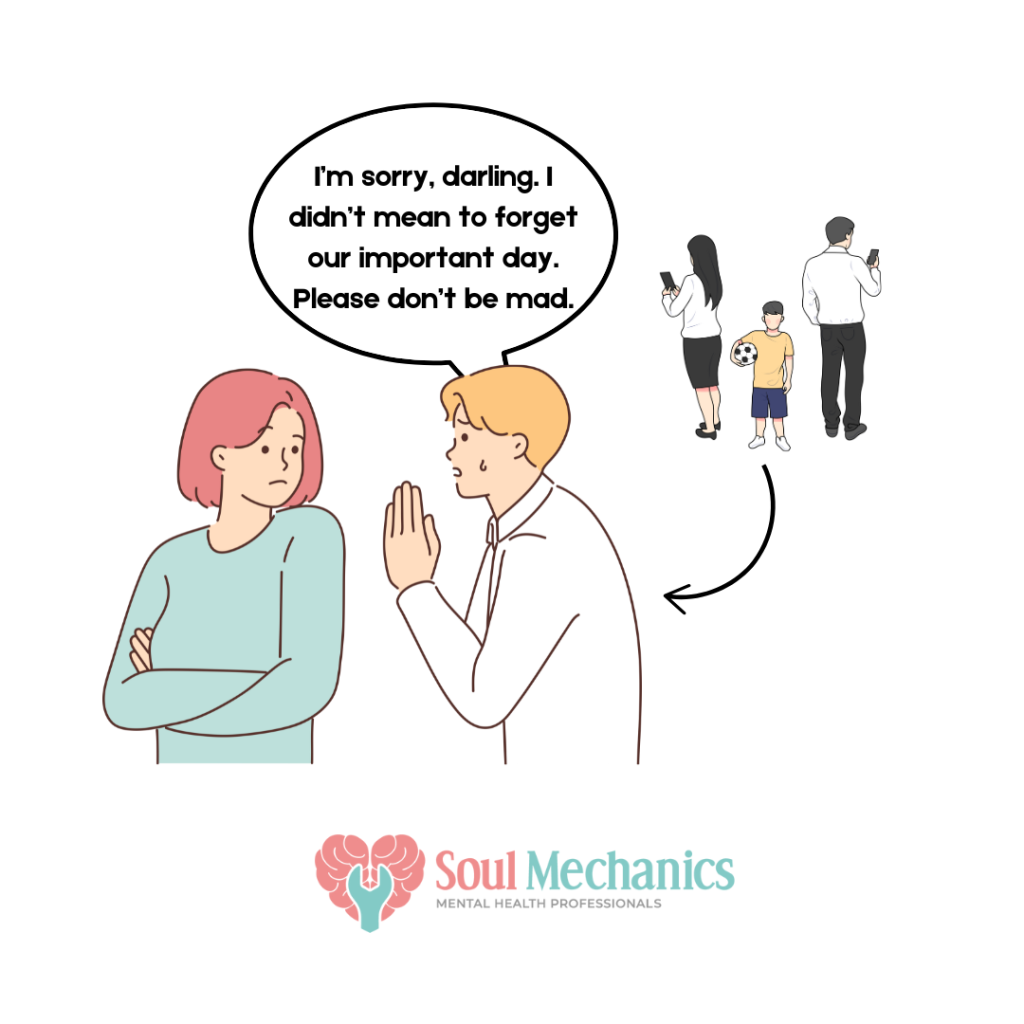
Trauma Response
For individuals who have experienced past traumas, especially in relationships where they felt dismissed and unsafe, chronic apologizing can be their coping approach to maintain their sense of control and safety. It becomes a way to prevent potential threats like punishment or rejection.
Cultural or Gender Influences
In some cultures or family systems, individuals, especially women and children, are often socialized to prioritize politeness. This often contributes to their over-apologizing tendencies as a learned behaviour to not let anyone down and maintain social expectations.
The Impact of Chronic Apologizing
Although excessive apologizing may seem to be something insignificant, it can impact your life in various aspects:
Erosion of Confidence
The constant need to apologize can cause feelings of inadequacy to stem as if you’re the one always at fault or not deserving space.
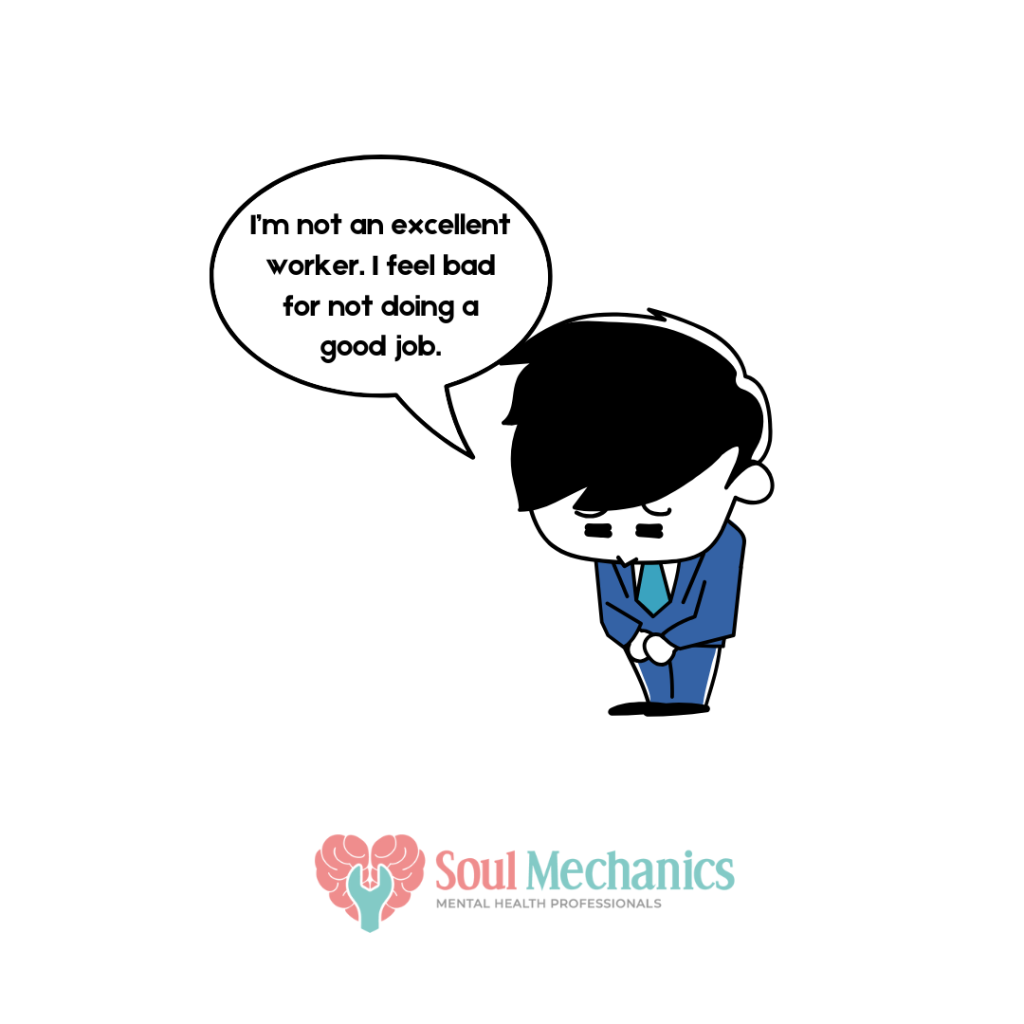
Reduced Credibility
Over-apologizing can also diminish the weight of your words, whereby when you make a genuine apology, it may sound less impactful.
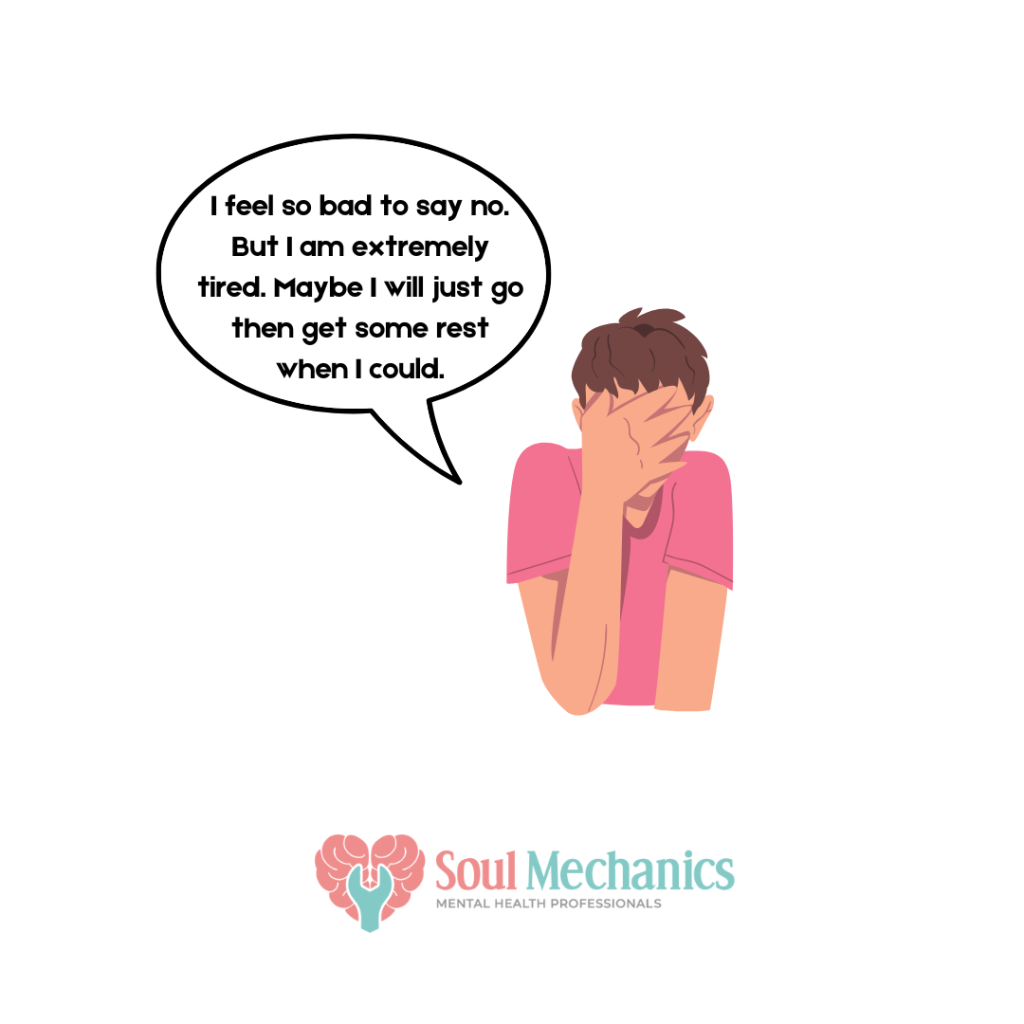
Weakened Boundaries
Apologizing for asserting your needs can lead others to disregard them, which can make it harder for you to set firm boundaries in future.
Enabling Unhealthy Dynamics
Over-apologizing can also make you a magnet for people who may exploit you, leading towards imbalanced or unhealthy relationships.
How to Break Free from Chronic Apologizing
If you find yourself stuck in the cycle of patterns, remember, it is still possible to heal from this pattern and foster healthier patterns and boundaries. Below are some practical tips to guide you to learn to reduce your excessive apologizing habits and assert yourself with confidence:
Awareness: Catch Yourself in the Act
The first step to healing is to address when and why you apologize. You can journal or mentally reflect on which instances you tend to say “sorry.” Was it actually your fault, or was apologizing your usual reflex?
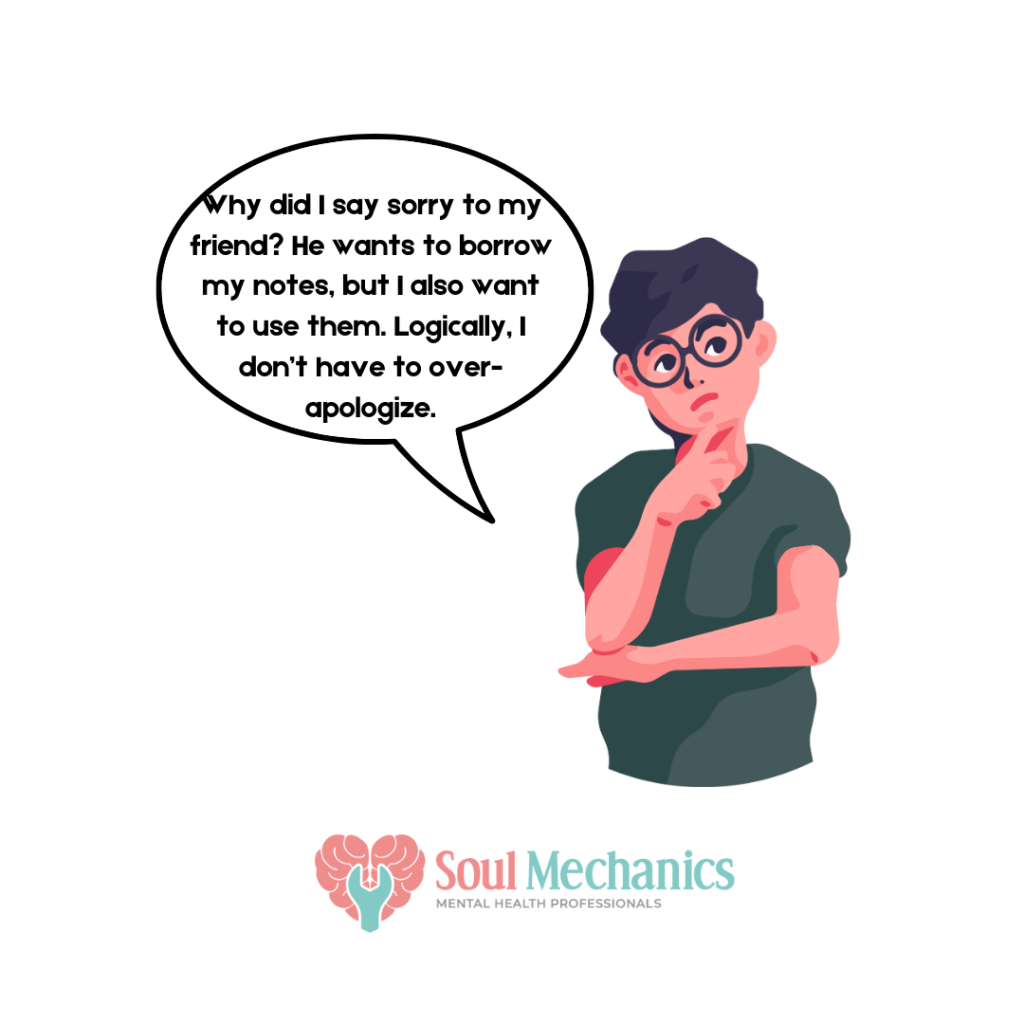
Understand Your Triggers
Acknowledge the situations or people that are more likely to make you say “sorry” excessively. Is it when you express your emotions during conflicts or when around intimidating people? Understanding your triggers can also help you address the underlying issue.
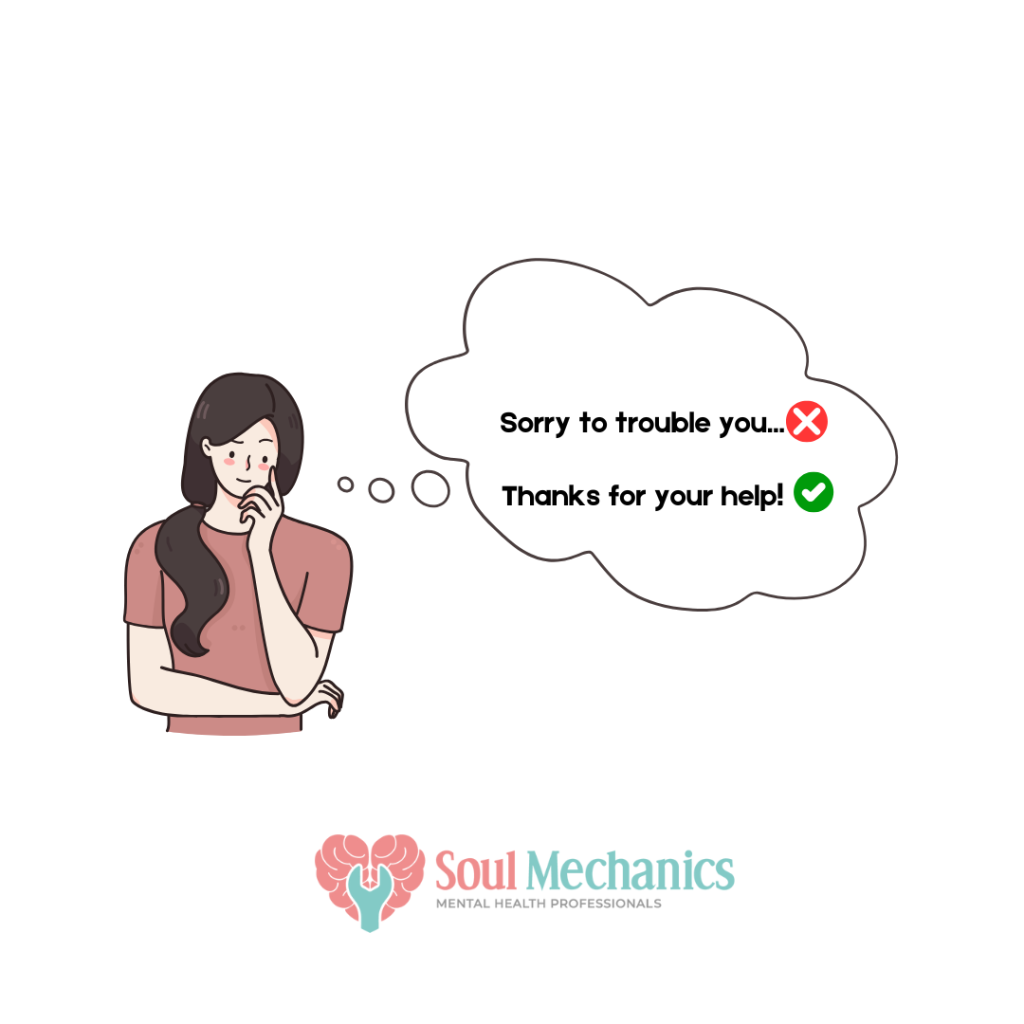
Reframe Your Language
Instead of apologizing, practice replacing “sorry” with other alternatives like “thank you”. This helps you convey your intention without diminishing yourself:
- Instead of “Sorry to bother you,” try “Thank you for clarifying.”
- Try “Thank you for being patient” instead of “Sorry I’m late.”
- Instead of “Sorry to ask again,” try “I have a question.”
Practice Assertiveness
Assertiveness is not about being rude or selfish, it's about expressing your needs, boundaries and opinions clearly in a respectful yet firm manner. Start small - express your thoughts without a “sorry” or learn to say no to something without or with minimal over-explaining for the start.
Challenge Guilt & Shame
Ask yourself: “Is it really my mistake?” If the answer is no, try to prolong or resist your urge to say “sorry”. Over time, challenging your unnecessary guilt can navigate you reduce your compulsion to apologize.
Build Self-Worth
It is crucial to affirm your value and right to occupy space. Remind yourself that your emotions, thoughts and presence are valid. Practices like journaling or positive affirmations can cultivate self-compassion and shift your inner narrative about yourself.

Seek Support
If chronic apologizing is deeply ingrained in you, consider working with a professional mental health therapist to explore the underlying causes and develop healthier coping skills and ways to gradually break free from these patterns. Trauma-informed therapy can also be beneficial if your over-apologizing stems from past abuse or trauma.
Shifting from “Sorry” to Empowered Communication

Breaking the habit of “over-apologizing” does not mean that you should not apologize hereafter. Apologies are an essential part of any relationship and show your accountability when used appropriately, not unnecessarily. The aim here is to make your apologies meaningful and intentional rather than being a reflex or habitual action.
A Final Thought
The journey of unlearning “over-apologizing” involves ups and downs, self-awareness, personal development and compassion. It is about reclaiming your buried voice, learning to set boundaries, and reminding yourself that you are not a burden but a person whose presence matters and is worthy of respect and space to express.
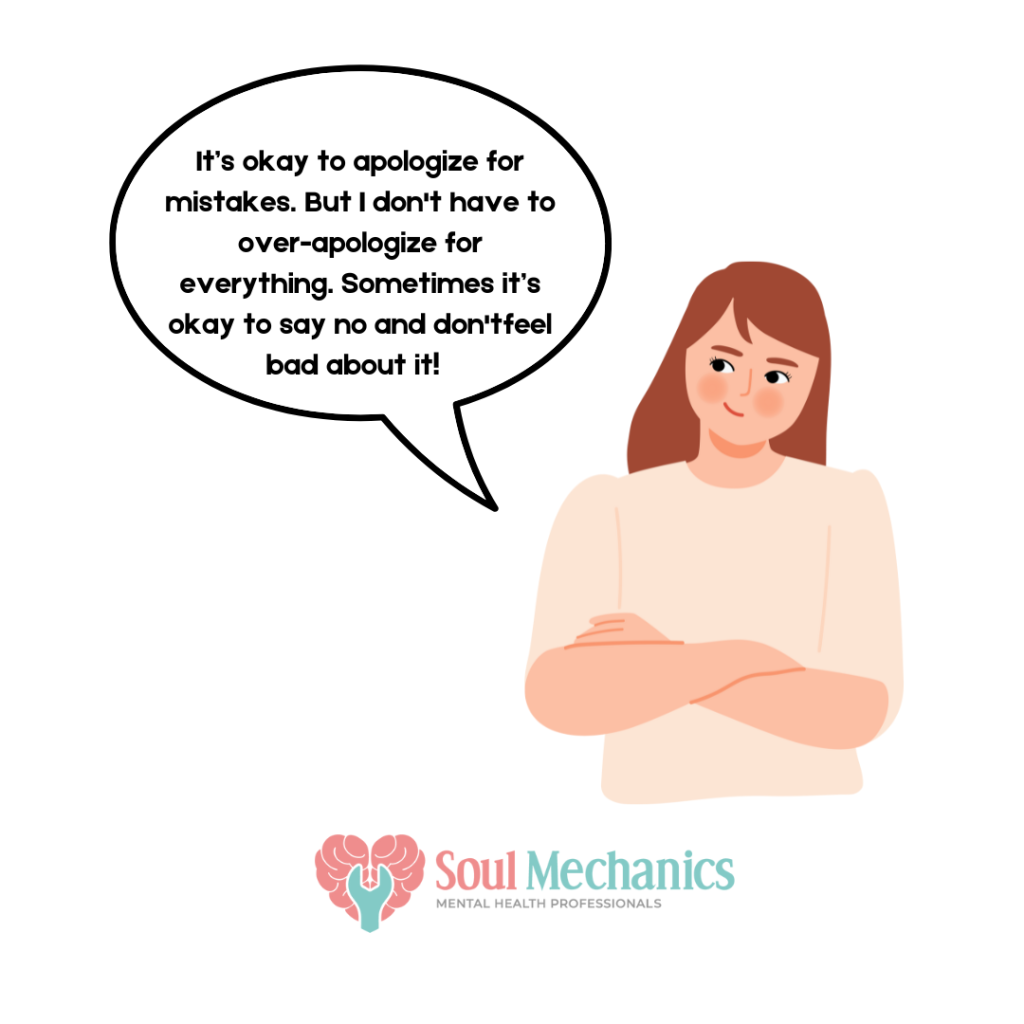
So, the next time you notice yourself apologising for something insignificant, pause for a moment and ask yourself: “Do I really need to say sorry, or is it something worthy of standing tall without it?”
Remember, your voice matters - not everything needs an apology, especially to express yourself.
You matter too, like others!
If you’re looking for a therapist in Kota Damansara or Ipoh area, you can click here for more information.
If you enjoyed reading this, why not broaden the horizon of knowledge by learning about Inner Child Crying For Help?"? You can read the blog here.
For more content related to mental health do follow us on our official Instagram.

